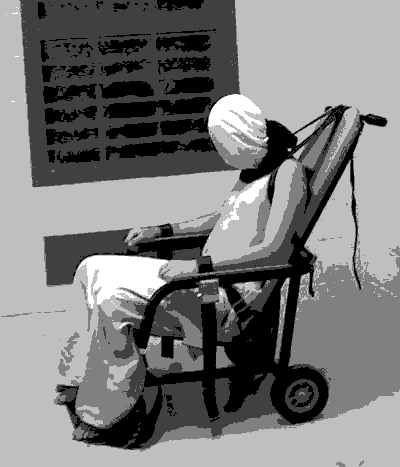Tough start for torture inquiry
 The United Nations has joined the torrent of outrage about abuse in Australian youth detention.
The United Nations has joined the torrent of outrage about abuse in Australian youth detention.
Alvaro Pop, who leads the UN’s permanent forum on indigenous issues, has issued a joint statement Australian forum member Professor Megan Davis to “categorically reject and denounce the brutalising treatment of Aboriginal and non-Aboriginal children at the Don Dale Youth Detention Center in the Northern Territory”.
“The treatment carried out to children in this facility include extended periods of solitary confinement and humiliating procedures that further exacerbate their distress and alienate them from successful rehabilitation or reintegration to society.”
As a signatory of the Convention Against Torture and Other Cruel, Inhumane and Degrading Treatment, as well as the Convention on the Rights of the Child, the Australian government must “immediately halt the inappropriate treatment of children” at the centre, they said.
Given that most of the detainees are Aboriginal children and that Australia has endorsed the United Nations Declarations on the Rights of Indigenous Peoples, the UN representatives say indigenous peoples must be involved in all processes of the investigation of the situation at Don Dale.
They also want to make sure that authorities implement a juvenile detention system that considers the needs and cultural appropriate methods for the rehabilitation of Aboriginal children.
Meanwhile, Indigenous Affairs Minister Nigel Scullion has again rejected calls for his resignation over various failures relating to the abuse at Don Dale.
NT Aboriginal elder Tom Calma told reporters this week he had lost confidence in the Indigenous Affairs Minister, but Mr Scullion says he has not lost the confidence of all community leaders.
He did admit he assumed another jurisdiction would deal with the abuse when he first became aware of it last year, and says his department could have done.
All this came just a few days after the Federal Government’s attempts to get a Royal Commission into the issue off the ground.
The terms for the inquiry have already been criticised for appearing too broad, with calls from Queensland and other jurisdictions for it to be expanded.
The government was forced to replace the head of the Royal Commission just a week after establishing the inquiry, after media reports damaged the perception of non-bias around former Northern Territory chief justice.
Mr Martin stepped down and has been replaced by high-profile Indigenous figure Mick Gooda and former Queensland Supreme Court judge Margaret White.
Mr Gooda has not been forced to step down, despite already calling for the NT Government to be sacked.
Conservative Liberal senator Cory Bernardi has questioned Mr Gooda’s involvement.
“The appropriateness of the appointments is the subject of debate but suffice it to say that, in the case of one appointee, I am most surprised that ancestry seems a more important qualification than judicial experience,” Bernardi wrote on his website.
“The fact that he had already rendered his verdict via social media prior to his appointment may also concern some but this seems to have been excused by many as emotive intemperance.
“Perhaps not the ideal characteristic for an independent reviewer of a highly charged matter, however, the decision of appointment has been taken by the prime minister and the attorney general and we are reliant on their prudence and judgment in this instance.”







 Print
Print